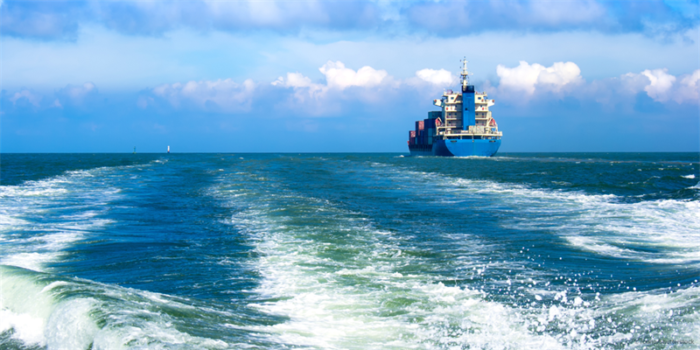The 8th session of IMO’s Sub-Committee on Pollution Prevention and Response (PPR 8) took place virtually on 22-26 March 2021. Among others, the meeting approved amendments to the IBC Code, and progressed discussions on the development of a standard for the verification of ballast water compliance monitoring devices.
Development of measures to reduce risks of use and carriage of HFO as fuel by ships in Arctic waters: The sub-committee decided to go with the version of the draft guidelines with the responsibilities of Maritime Administrator and Ship Operator restructured into separate sections. The sub-committee is expected to finalize the draft guidelines at PPR 9, upon receiving the review of the relevant sections from the other sub-committees. Also, PPR 9 is expected to set up a drafting group for review of the draft guidelines, with the intent of subsequent approval by MEPC. The sub-committee has requested MEPC 76 to extend the target completion year for this output to 2022.
The draft guidelines are intended to assist Administrations of the Parties to MARPOL, the coastlines of which border on Arctic waters, to implement measures at national level to reduce the risks associated with the use of HFO as fuel and its carriage for use as fuel by ships in Arctic waters.
The draft guidelines are also aimed at providing ship operators of ships planning voyages in the Arctic with recommendations on measures to reduce the risk of spills while using or carrying HFO for use as fuel in Arctic waters.
The Sub-Committee noted that the MEPC is expected at its next session, MEPC 76 (June 2021), to adopt approved draft amendments to MARPOL Annex I (addition of a new regulation 43A) to introduce a prohibition on the use and carriage for use as fuel of heavy fuel oil (HFO) by ships in Arctic waters on and after 1 July 2024. In this context, the draft guidelines will also assist States to take decisions on waivers which will be permitted until 2029 under the proposed draft regulation 43A for ships flying their flag while operating in Arctic waters subject to their sovereignty or jurisdiction.
Review of the IMO biofouling guidelines
The Sub-Committee continued its review of the IMO Biofouling Guidelines, which provide a globally consistent approach to the management of biofouling – the accumulation of various aquatic organisms on ships’ hulls, which is also a vector for the transfer of invasive aquatic species.
The Correspondence Group on Review of the Biofouling Guidelines was re-established and the Sub-Committee requested to extend the target completion year to 2023.
Addressing losses or discharges of fishing gear
The Sub-Committee has been tasked with progressing certain elements of IMO’s action plan to address marine plastic litter. In this context, the Sub-Committee considered the output of a correspondence group, which has been looking at how to address losses or discharges of fishing gear, including draft amendments to reporting requirements under MARPOL Annex V regulations on the prevention of pollution from ships by garbage.
The Sub-Committee agreed to further consider the report of the correspondence group and the commenting document that had been submitted to this session at its next session, in conjunction with additional relevant documents that may be forwarded to PPR 9 by the MEPC. The Committee was invited to extend the target completion year to 2023.
Evaluation of safety and pollution hazards of chemicals and preparation of consequential amendments to the IBC Code, as well as routine ongoing updates. This session discussed and agreed to a generic entry for “Palm oil mill effluent (POME) technical oil” be included in List 1 of the draft MEPC.2/Circular and subsequently in chapter 17 of the IBC Code.
Development of a standard for the verification of ballast water compliance monitoring devices (CMDs). Discussions over the development of a standard for verification of ballast water compliance monitoring systems moved forward and the proposals by member States and NGOs were reviewed. The intention is that the revised protocol can be used to verify the performance of CMDs, which may be used during commissioning testing, data gathering during the experience-building phase, compliance testing by PSC or self-monitoring. A correspondence group on Development of a Protocol for Verification of Ballast Water Compliance Monitoring Devices has been set up, to prepare an updated draft protocol for verification of ballast water compliance monitoring devices.
Revision of MARPOL Annex IV and associated guidelines to introduce provisions for record-keeping and measures to confirm the lifetime performance of sewage treatment plants is underway, with this session of PPR reviewing the report of the correspondence group (CG) which presented, among other outputs, a new draft of the associated guidelines (amending 2012 Guidelines on implementation of effluent standards and performance tests for sewage treatment plants (resolution MEPC.227(64))). PPR 8 has agreed for the continuation of the CG (with the additional flexibility for the coordinators to convene virtual meetings in addition to the work by correspondence) and has requested MEPC 76 to allow an extension of the target completion year for the output to 2023.
The impact on the Arctic of Black Carbon emissions from international shipping: With the industry’s increased experience and test results indicating that the nature of VLSFO tends to be more paraffinic in nature, this long-standing discussion is being further progressed with a view to developing possible control measures for Black Carbon emissions from international shipping. The sub-committee has sought an extension from MEPC 76 for the discussions to continue on this topic.
More specifically, the Committee would:
- Develop, as a starting point, guidelines on recommendatory goal-based control measures to reduce the impact on the Arctic of Black Carbon emissions from international shipping, taking into account identified candidate control measures by PPR 6 (related to the use of certain fuel types; fuel and exhaust gas treatment; ship, engine and propulsion system design; operational measures; as well as regulatory measures);
- Further consider regulating or otherwise directly control Black Carbon emissions from marine diesel engines (exhaust gas) to reduce the impact on the Arctic of Black Carbon emissions from international shipping, taking into account the identified candidate control measures;
- Further consider recommended Black Carbon measurement methods (light absorption filter smoke number (FSN); photo-acoustic spectroscopy (PAS); and laser induced incandescence (LII)) to be used in conjunction with regulations to control Black Carbon emissions from marine diesel engines;
- Develop a standardized sampling, conditioning and measurement protocol, including a traceable reference method and an uncertainty analysis, taking into account the three most appropriate Black Carbon measurement methods (FSN, PAS, LII), to make accurate and traceable (comparable) measurements of Black Carbon emissions. This measurement system should not preclude consideration and agreement on policy options to avoid or otherwise limit Black Carbon emissions from ships, as its development would in fact benefit from guidance on how possible regulations would be applied;
- Submit a report to MEPC 79 in 2022.































































